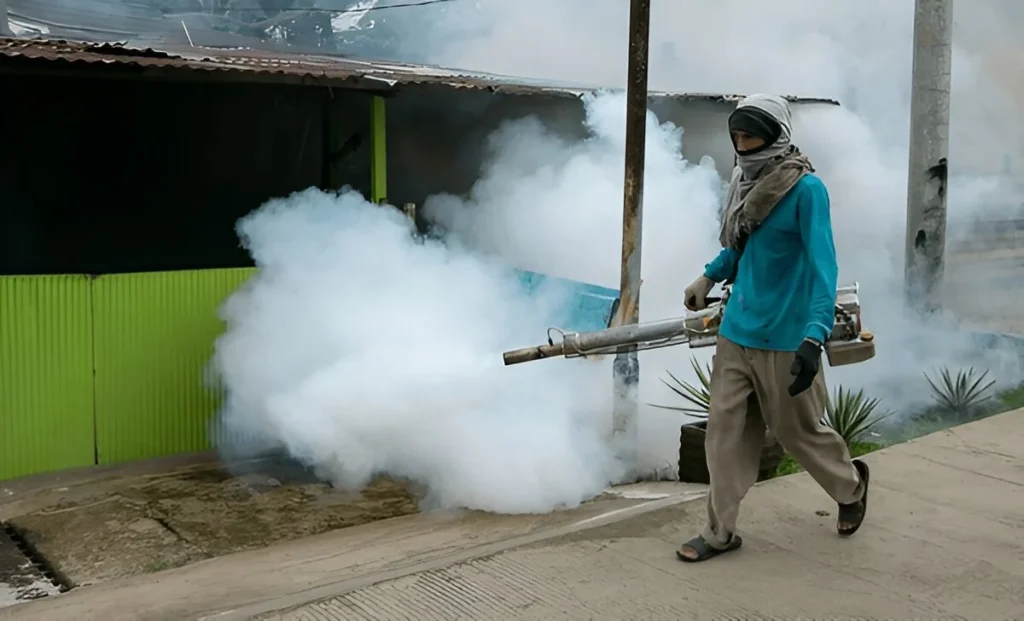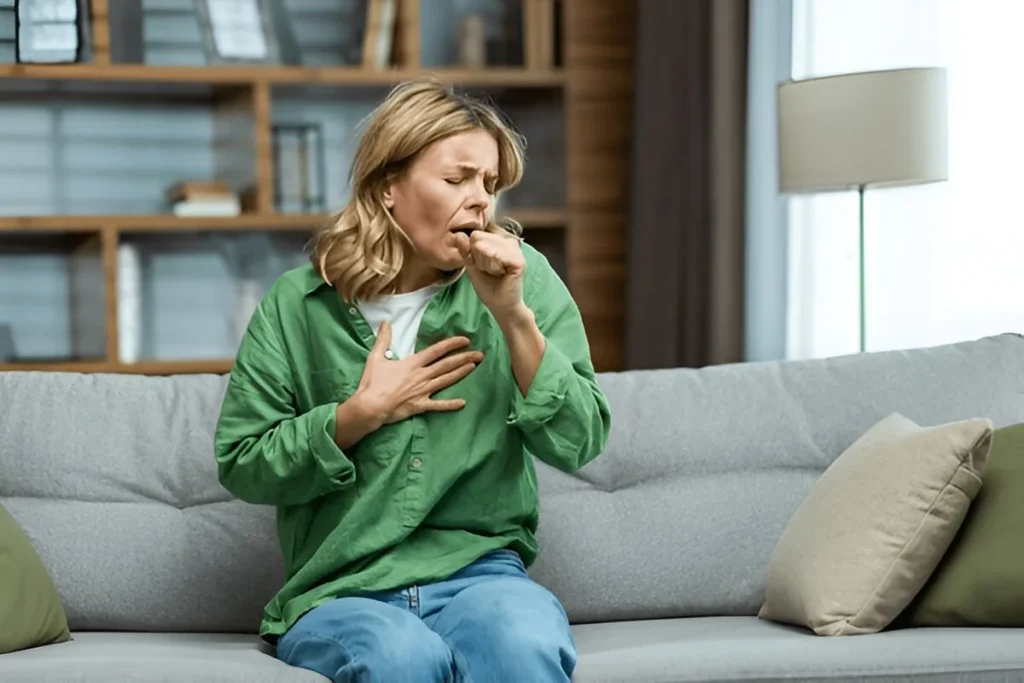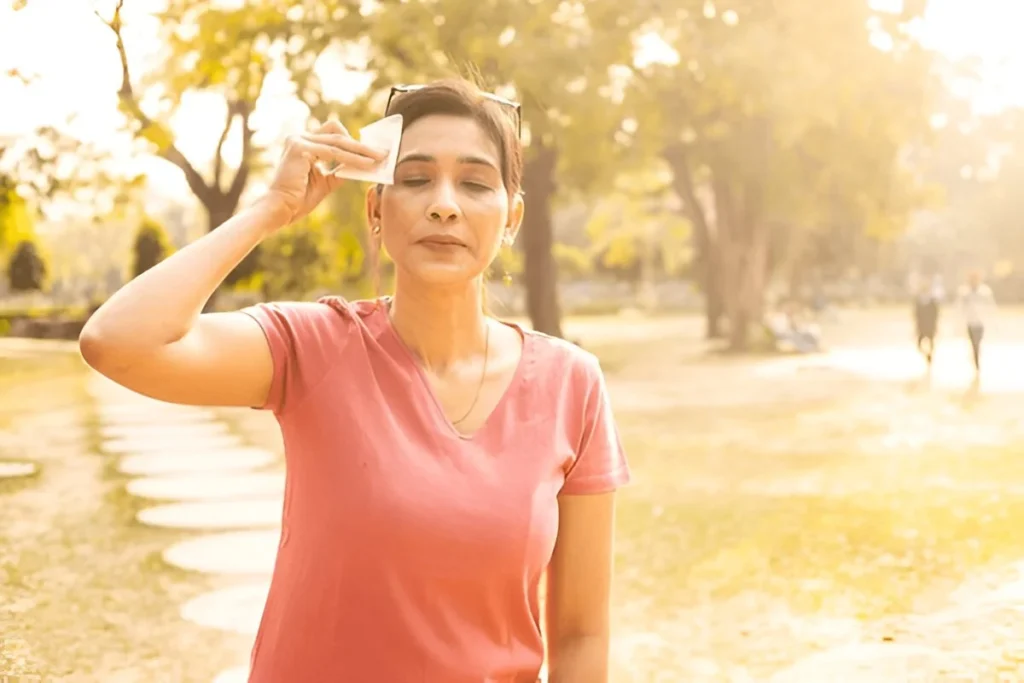Delhi, the vibrant heart of India, isn’t just known for its bustling streets and historic monuments; it’s also notorious for its challenging weather changes that bring along a host of health issues. With extreme temperature swings from scorching summers to biting winters and a monsoon season in between, Delhiites often find themselves vulnerable to various seasonal diseases. Understanding these diseases and knowing how to prevent them is crucial to staying healthy year-round. Let’s deep dive into the five most common seasonal diseases in Delhi and explore effective prevention strategies to safeguard yourself and your family.
Overview of Delhi’s Seasonal Climate and Health Challenges
Extreme Weather Shifts

Delhi experiences a classic continental climate characterized by:
- Harsh Summers: Temperatures soar above 45°C.
- Monsoon Rains: Heavy downpours between June and September.
- Chilly Winters: Temperatures can dip close to freezing.
These sharp climatic variations strain the human body’s immune system, making it susceptible to infections, viruses, and bacterial invasions.
Impact on Public Health
- Pollution peaks during winters, leading to respiratory issues.
- Stagnant water post-monsoon becomes breeding grounds for mosquitoes.
- Extreme heat increases risks of dehydration and heat-related illnesses.
- Contaminated water and food during the rainy season cause gastrointestinal diseases.
Understanding the correlation between climate and health is the first step in preventing seasonal illnesses in Delhi.
Disease 1 – Dengue
What is Dengue?
Dengue is a mosquito-borne viral infection caused by the dengue virus. It’s one of the biggest public health challenges in Delhi, especially after the monsoon season when mosquito breeding surges due to stagnant water.

Causes and Spread
- Spread by the Aedes aegypti mosquito, which bites during the day.
- Lays eggs in clean, stagnant water — such as water coolers, flower pots, and uncovered containers.
Symptoms to Watch Out For
- Severe headache
- Pain behind the eyes
- Joint and muscle pain
- Skin rashes
- Nausea and vomiting
If untreated, dengue can escalate into severe dengue, causing bleeding, low platelet count, and potentially death.
Prevention Tips for Dengue
- Regularly empty, clean, and cover water containers.
- Use mosquito repellents and wear full-sleeve clothing.
- Install screens on windows and doors to block mosquitoes.
- Promote community clean-up drives to eliminate breeding sites.
- During dengue outbreaks, avoid outdoor activities during early morning and late afternoon when Aedes mosquitoes are most active.
Disease 2 – Influenza (Seasonal Flu)
Understanding Influenza
The seasonal flu is a contagious respiratory illness caused by influenza viruses. It affects thousands of Delhi residents every winter, especially when the temperatures dip and immunity levels are low.

How Influenza Spreads in Delhi
- Spread through droplets when infected people cough, sneeze, or talk.
- Close-contact settings like public transport, schools, and offices accelerate transmission.
Key Symptoms of Seasonal Flu
- Sudden high fever
- Body aches and chills
- Sore throat
- Fatigue
- Runny or stuffy nose
- Persistent coughing
Influenza can lead to serious complications like pneumonia, particularly in the elderly and people with pre-existing health conditions.
Best Practices to Prevent Influenza
- Annual flu vaccination is highly recommended.
- Frequent handwashing with soap and water.
- Avoid touching the face, especially mouth, nose, and eyes.
- Maintain distance from people showing flu symptoms.
- Strengthen the immune system with vitamin-rich foods like citrus fruits, leafy greens, and nuts.
Disease 3 – Respiratory Infections (Common Cold and Asthma)
Seasonal Aggravators in Delhi
Delhi’s infamous air pollution, especially during winter, significantly worsens respiratory problems. Coupled with dry cold air and smog, it creates a perfect storm for infections.

Factors that trigger respiratory issues:
- High PM2.5 levels
- Smoke from burning crops
- Increased use of heating appliances that dry indoor air
Common Symptoms
- Sneezing
- Nasal congestion
- Coughing
- Wheezing (especially in asthmatics)
- Shortness of breath
- Sore throat
For those already battling asthma, Delhi winters can be particularly dangerous.
How to Keep Respiratory Infections at Bay
- Use N95 masks while outdoors.
- Install air purifiers inside homes.
- Avoid outdoor activities early morning and late evening when pollution is at its peak.
- Stay hydrated to keep mucous membranes moist.
- Steam inhalation can soothe irritated airways.
- Asthmatics should always keep their inhalers handy and consult doctors for adjusting medications during the winter months.
Disease 4 – Gastroenteritis
Introduction to Gastroenteritis
Commonly called the stomach flu, gastroenteritis is an inflammation of the gastrointestinal tract involving both the stomach and the small intestine. It’s extremely prevalent during the monsoon and late summer months in Delhi.

Contaminated Water and Food – The Culprit
- Consumption of contaminated drinking water.
- Eating street food exposed to flies and dust.
- Poor sanitation and hygiene practices.
- Cross-contamination during food preparation.
Major Symptoms
- Diarrhea
- Vomiting
- Stomach cramps
- Fever
- Dehydration (a serious concern, especially in children)
Measures to Prevent Gastroenteritis
- Drink only boiled or RO-purified water.
- Avoid eating roadside food during monsoons.
- Wash hands thoroughly before eating and after using the toilet.
- Cook food thoroughly and eat it while it’s hot.
- Wash fruits and vegetables thoroughly before consumption.
- Use disinfectants to clean kitchen surfaces.
Disease 5 – Heat Stroke and Dehydration
Summer Woes: Heat-Related Illnesses
Summers in Delhi are brutal. Heat stroke and dehydration are serious risks, especially for outdoor workers, children, and elderly people.

Signs and Symptoms
- Extremely high body temperature (above 40°C)
- Confusion or altered mental state
- Hot, dry skin or profuse sweating
- Nausea
- Throbbing headache
- Rapid heartbeat
If untreated, heat stroke can be fatal.
How to Stay Cool and Hydrated

- Stay indoors during peak afternoon hours (12 PM to 4 PM).
- Drink plenty of fluids even if you don’t feel thirsty.
- Wear loose, light-colored, and breathable clothing.
- Use cooling aids like fans, air conditioners, and cool baths.
- Eat water-rich foods like watermelon, cucumbers, and oranges.
General Prevention Tips for All Seasons
Hygiene and Sanitation
One of the most effective ways to guard yourself against most seasonal diseases is practicing good hygiene and sanitation habits. Whether it’s summer, monsoon, winter, or spring, cleanliness remains a constant shield.


Essential hygiene practices include:
- Washing hands frequently with soap and water, especially before eating or touching the face.
- Keeping your surroundings clean, particularly water tanks, bathrooms, and kitchens.
- Proper waste disposal to prevent the breeding of pests and insects.
- Using hand sanitizers when soap and water are unavailable, particularly when traveling or eating outside.
- Maintaining personal hygiene, like daily showers, wearing clean clothes, and regular oral care.
In Delhi’s bustling urban environment, germs lurk around every corner, so these basic practices act like armor against unseen threats.
Building Immunity Naturally
A strong immune system is your body’s best defense against seasonal diseases. Instead of depending solely on medicines after falling sick, fortify your immune response proactively.
Tips to naturally boost your immunity:
- Eat a colorful diet rich in fruits and vegetables for vitamins A, C, D, and E.
- Include probiotics like yogurt and fermented foods to improve gut health.
- Get sufficient sleep (7–9 hours) to allow your body to repair and regenerate.
- Manage stress through meditation, exercise, or hobbies you love.
- Stay active with at least 30 minutes of moderate exercise daily.
Natural immunity boosters, such as turmeric milk, herbal teas (like tulsi and ginger tea), and garlic, are traditional Indian remedies worth including in your daily diet.
Staying Informed and Proactive
Awareness is half the battle won. Staying updated about the seasonal disease trends in Delhi can help you stay a step ahead.
How to stay proactive:
- Keep an eye on health advisories issued by local authorities.
- Vaccinate timely, particularly for diseases like influenza.
- Stock basic medicines and first aid kits at home.
- Seek timely medical help at the first sign of illness rather than waiting for it to worsen.
Also, educating children and elders at home about prevention strategies ensures the entire family is well-protected.
When to Seek Medical Help
Many seasonal diseases can initially seem mild but may escalate if neglected. Knowing when to seek professional medical help is crucial to prevent complications.
Warning signs you should never ignore:
- High fever lasting more than 3 days
- Difficulty in breathing or chest pain
- Persistent vomiting or diarrhea leading to dehydration
- Confusion, fainting, or seizures
- Severe headaches or neck stiffness
In Delhi, where healthcare facilities range from government hospitals to high-end private clinics, immediate consultation is accessible. Always keep emergency numbers handy, especially during the high-risk seasons like monsoon and winter.
Regular health checkups, especially if you belong to high-risk groups (children, pregnant women, elderly, and those with chronic illnesses), are highly recommended during seasonal transitions.
Conclusion
Delhi’s charm is undeniable, but living here comes with its own set of health challenges, especially due to extreme weather swings. Seasonal diseases like dengue, influenza, respiratory infections, gastroenteritis, and heat stroke spike at different times of the year. However, armed with the right knowledge and preventive measures, you can enjoy the beauty of every season without compromising your health.
Simple steps like maintaining hygiene, building natural immunity, staying informed, and seeking timely medical attention can act as your health insurance. Prevention, as they say, is always better than cure—especially in a dynamic city like Delhi.
Stay alert, stay safe, and embrace every season with good health and positivity!
FAQs
1. What are the peak months for seasonal diseases in Delhi?
The monsoon months (July–September) see a surge in dengue and gastroenteritis, while winters (November–January) witness a spike in respiratory infections and influenza.
2. Is the air quality in Delhi linked to respiratory diseases?
Absolutely. Poor air quality, especially during winters due to smog and pollution, significantly increases the risk of respiratory issues like asthma, bronchitis, and common colds.
3. How effective are vaccines in preventing seasonal flu?
Annual influenza vaccines are highly effective. They greatly reduce the severity and spread of flu, especially among vulnerable groups like young children, seniors, and those with weakened immune systems.
4. What home remedies can help prevent common seasonal illnesses?
Simple remedies like drinking tulsi and ginger tea, inhaling steam, gargling with salt water, consuming turmeric milk, and eating citrus fruits can strengthen immunity and fend off many infections.
5. Are seasonal diseases more dangerous for children and seniors?
Yes, children and the elderly are more vulnerable due to weaker immune systems. They are at a higher risk of complications and should follow stricter preventive measures and consult doctors at the first sign of illness.


Leave a Reply